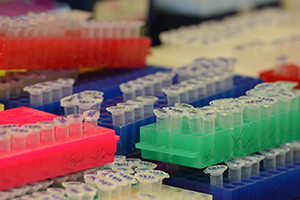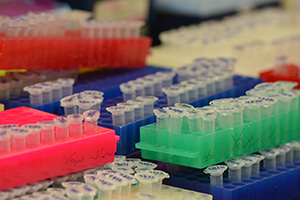A funded postdoctoral  position is available in the Division of Nephrology at Washington University in St. Louis. The Humphreys laboratory (http://humphreyslab.com/) investigates the cellular and molecular mechanisms of adult kidney injury and repair. We are exploring the role of developmental signaling pathways (Hh, Wnt) in paracrine signaling during kidney injury and fibrosis with potential future clinical applications (e.g., acute kidney injury and chronic renal fibrosis). Over the last two years kidney has become the organ system of choice for modeling complex organogenesis by directed differentiation of pluripotent cells (For example: Takasato et al., Nature, 2015). We are currently culturing human iPS cells and embarking on studies to model kidney injury after generation of organoids in vitro. Several reporter iPS lines will aid in these efforts. We are seeking a highly motivated, curious and enthusiastic individual with excellent problem solving skills to thrive in a highly supportive environment. This postdoctoral project will focus primarily on directed differentiation of human iPS cells to kidney organoids and the fellow will participate in a national consortium funded by NIH. Other techniques the fellow will learn include RNA-Seq, high resolution microscopy, FACS analysis and gene editing (Crispr/Cas9). The ideal candidate will have outstanding molecular and cell biology training. Experience with pluripotent cell culture and directed differentiation is strongly preferred but not mandatory. Training in a variety of mouse models of kidney disease will also be provided as needed. The position should appeal most to scientists who want to apply gene editing and iPS culture techniques to the study of kidney failure and ultimately the goal of growing transplantable kidneys in the laboratory. This is a funded position, permanent resident status is preferred and the successful applicant will also be expected to write fellowship applications in later years of the fellowship.
position is available in the Division of Nephrology at Washington University in St. Louis. The Humphreys laboratory (http://humphreyslab.com/) investigates the cellular and molecular mechanisms of adult kidney injury and repair. We are exploring the role of developmental signaling pathways (Hh, Wnt) in paracrine signaling during kidney injury and fibrosis with potential future clinical applications (e.g., acute kidney injury and chronic renal fibrosis). Over the last two years kidney has become the organ system of choice for modeling complex organogenesis by directed differentiation of pluripotent cells (For example: Takasato et al., Nature, 2015). We are currently culturing human iPS cells and embarking on studies to model kidney injury after generation of organoids in vitro. Several reporter iPS lines will aid in these efforts. We are seeking a highly motivated, curious and enthusiastic individual with excellent problem solving skills to thrive in a highly supportive environment. This postdoctoral project will focus primarily on directed differentiation of human iPS cells to kidney organoids and the fellow will participate in a national consortium funded by NIH. Other techniques the fellow will learn include RNA-Seq, high resolution microscopy, FACS analysis and gene editing (Crispr/Cas9). The ideal candidate will have outstanding molecular and cell biology training. Experience with pluripotent cell culture and directed differentiation is strongly preferred but not mandatory. Training in a variety of mouse models of kidney disease will also be provided as needed. The position should appeal most to scientists who want to apply gene editing and iPS culture techniques to the study of kidney failure and ultimately the goal of growing transplantable kidneys in the laboratory. This is a funded position, permanent resident status is preferred and the successful applicant will also be expected to write fellowship applications in later years of the fellowship.
To apply for this position, please submit a letter explaining your interest, a CV and contact information for three references to Benjamin Humphreys MD, PhD (bhumphre@dom.wustl.edu)
